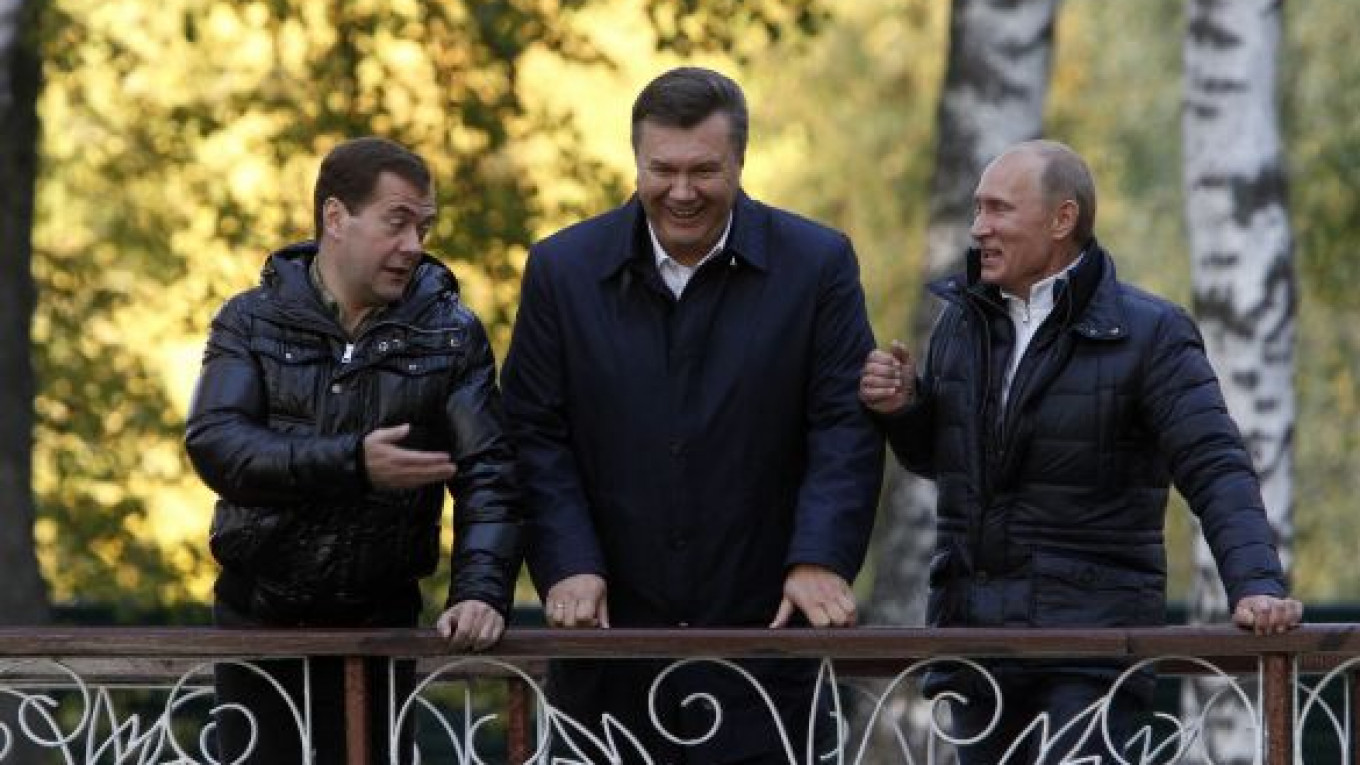Ukraine's proposal for Gazprom and European Union companies to play a role in managing its natural gas pipelines could enter the spotlight again when EU Energy Commissioner Günther Oettinger arrives in Kiev for talks this week.
In addition to meeting with officials, Oettinger is scheduled to attend a conference Thursday on upgrading the pipelines.
Setting the stage for the visit, the European Bank for Reconstruction and Development said Friday that it was ready to extend a loan of $150 million to Ukraine's national energy company Naftogaz next year for the upgrade to commence.
The decision will hinge on the government's progress in dividing Naftogaz into separate production and transportation companies, said Andre Kuusvek, EBRD country director for Ukraine, Interfax reported. Another $150 million for the upgrade could come from the European Investment Bank, he said.
It appears that Gazprom's future policy for Ukraine is also a factor. The country's pipelines mostly carry Russian gas — for domestic use and transit — and Gazprom's commitment to continue these shipments would be an important reason for any major investment.
In an effort to win this commitment, Ukrainian President Viktor Yanukovych last year threw his weight behind the idea that Gazprom, Naftogaz and EU energy companies form a consortium to run the pipelines. The plan has moved to the back burner after Russia offered to merge Gazprom and Naftogaz, a proposal that did not fly either.
Gazprom's involvement in managing the Ukrainian pipeline could also reduce the risk of a breakdown in supplying Europe with Russian gas, such as the most recent disruption in January 2009. Deliveries ran dry over a pricing dispute between Moscow and Kiev at the time — and they are arguing about the gas price again.
Following talks with President Dmitry Medvedev and Prime Minister Vladimir Putin in Tver on Saturday, Ukrainian President Viktor Yanukovych said his country feels a "certain worry about our energy questions," even as he is confident they will be resolved with Russia, Bloomberg reported.
A source in Ukraine's presidential administration said Oettinger would raise the gas trade and consortium issues during the talks, Kiev-based Ekonomicheskiye Izvestia reported. A spokeswoman for the commissioner's office said Friday that she could not confirm this.
Yanukovych's press office referred calls to the presidential administration's European integration official, Yevgeny Perelygin, who was unavailable for comment Friday afternoon. The Energy Ministry in Moscow did not respond to a request for comment.
The ideal consortium would include Naftogaz, Gazprom and the European Investment Bank to represent the EU, said Michael Emerson, a researcher at the Center for European Policy Studies in Brussels. The EBRD could be another stakeholder, he said.
"There is the important point that the EBRD pays serious attention to assuring high corporate governance standards, which are going to be absolutely necessary here," he said by e-mail.
Europe's gas-importing companies would also be a good addition to the consortium, he said.
Gazprom should not insist on holding at least 50 percent, Emerson said.
Unable to control Ukraine's pipelines, Gazprom has pursued plans to build undersea pipelines — Nord Stream in the Baltic Sea and South Stream in the Black Sea — to link Russia with Europe directly.
A Message from The Moscow Times:
Dear readers,
We are facing unprecedented challenges. Russia's Prosecutor General's Office has designated The Moscow Times as an "undesirable" organization, criminalizing our work and putting our staff at risk of prosecution. This follows our earlier unjust labeling as a "foreign agent."
These actions are direct attempts to silence independent journalism in Russia. The authorities claim our work "discredits the decisions of the Russian leadership." We see things differently: we strive to provide accurate, unbiased reporting on Russia.
We, the journalists of The Moscow Times, refuse to be silenced. But to continue our work, we need your help.
Your support, no matter how small, makes a world of difference. If you can, please support us monthly starting from just $2. It's quick to set up, and every contribution makes a significant impact.
By supporting The Moscow Times, you're defending open, independent journalism in the face of repression. Thank you for standing with us.
Remind me later.


